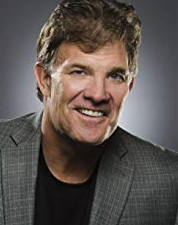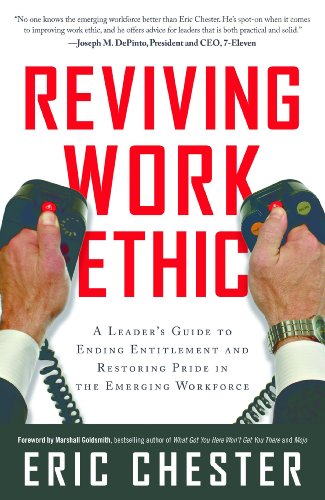
Reviving Work Ethic: A Leader’s Guide to Ending Entitlement and Restoring Pride in the Emerging Workforce
By Steven Sacks
An American Psychological Association study shows that during this period of rapid change and uncertainty about business and the economy, there is a higher level of chronic stress caused by organizational change. Change increases distrust with employers, leading to the potential of employee departures within a year’s time.
Tax and accounting firms are no exception. In fact, it could be argued they are a cauldron of change-related stresses and strains these days.
In Reviving Work Ethic: A Leader’s Guide to Ending Entitlement and Restoring Pride in the Emerging Workforce, author Eric Chester explains how to grapple with these issues in firms and organizations large and small, and with some uncommon common sense. Since 1998, Eric Chester has been the leading voice in attracting, managing, motivating, and retaining the emerging workforce. As an in-the-trenches workplace researcher and thought-leader, Chester may have cracked the code on the tactics and strategies companies that are recognized as “best places to work” in their respective industries are using to win the talent wars.
A study by the American Psychological Association high levels of chronic stress caused by organizational change leads to increased of distrust with employers and increases the likelihood of employee departures within a year’s time. About half of the Americans surveyed have been affected by organizational change over the past year or expect to be impacted within the next year.
Change is tough to absorb, especially if there has been a lack of communication or shared information with employees. This also has a bearing on work ethic. Company leaders probably hope and expect that their workforce will have been instilled with a work ethic from their parents and teachers early on. But this is not a worry that leaders should have, according to Chester.

Chester simplifies the worker challenge by categorizing employees into one of four quadrants:
1) Idle Quadrant;
2) Lucky Quadrant;
3) Cheating Quadrant, and
4) Valued Quadrant.
This theory is built on a horizontal axis of cognizance: the ability to know what the employer wants and expects. The left side reflects the “don’t know” status and the right side, the “know” status.
This is then overlaid by a vertical axis of compliance, where the top is the “doing it” definition and the bottom part, where the “not doing” or inactivity part resides. These horizontal and vertical axes form the four quadrants.
Starting from the bottom left and going clockwise is the Idle Quadrant, those employees who don’t understand work ethic. This is followed by the Lucky Quadrant: those employees who may actually fall into the prior quadrant but through luck show up on time or appear reliable. Next is the Valued Quadrant: those employees who clearly know what they have to do and they do it while possessing the work ethics that bring pride to their bosses. Finally, there is the Cheating Quadrant: those employees who know what is expected of them but choose not to perform.
The challenge is how to move employees to the top-right Valued Quadrant. Chester proposes five strategies to accomplish this:
1) Find your style
2) Develop trust
3) Value tact and timing
4) Tell stories
5) Cast a vision
He then combines this with seven identified Work Ethic Markers. These markers are those that most of us were taught when we were children, such as play nice, be prompt, do your best, and tell the truth. These are not new concepts developed by high-priced consultants specializing in organizational development. Just plain common sense.
There have been books written for the new generation of workers and bookstores have shelves lined with new theories and ideas. But nothing works as well as philosophies that have made the U.S. the global business leader.
The book also provides guidelines for how to conduct more insightful interviews where answers to certain questions will uncover work ethic.
Whether a small mom and pop shop or a Fortune 500 company, there are valuable nuggets to get from reading this book.